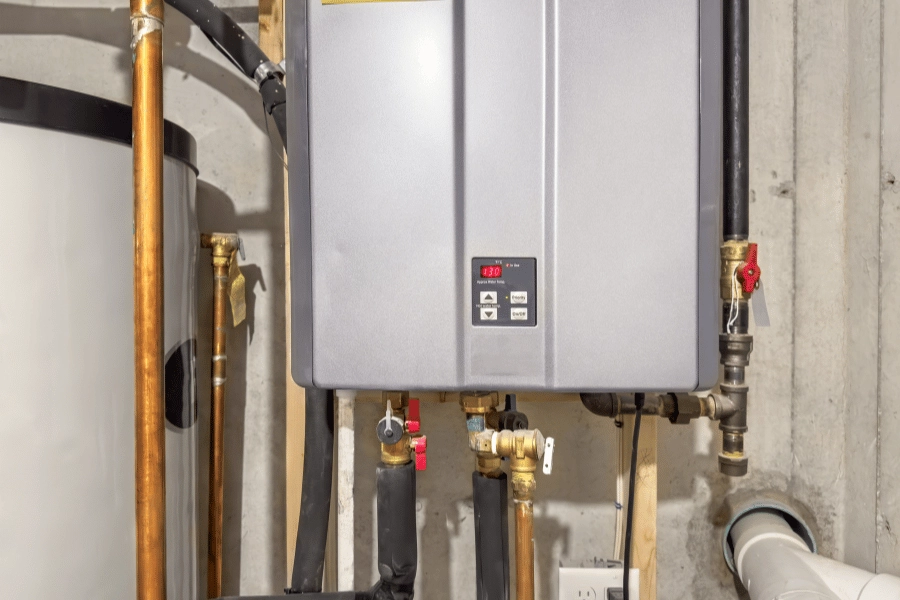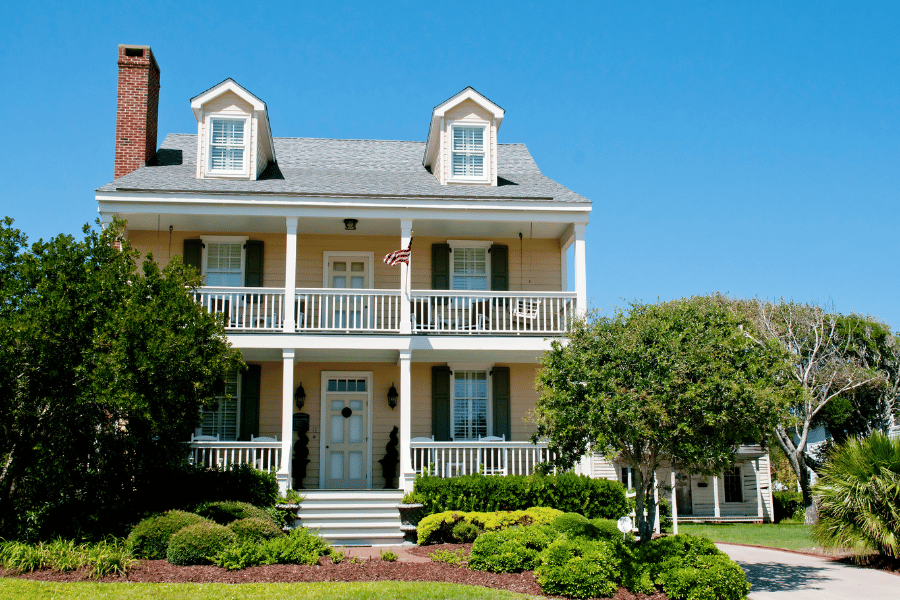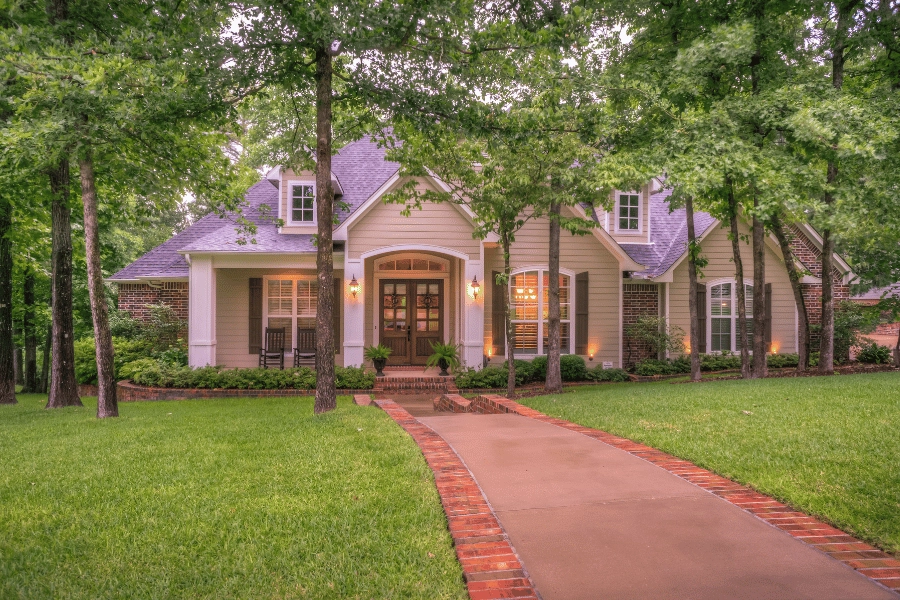Tankless Water Heater Drawbacks
Are you considering getting a tankless water heater? Here are some of the downsides to owning one in your home.
Whether you are building a new home or buying one, it is crucial to understand what type of water heater you will have. A reliable water heater is essential for daily hot water activities, like using a dishwasher, washing machine, and shower. Different types of water heaters are available, and it is necessary to understand which one works best for you.
There are various water heater options, including storage tank heaters (the most common type people have in their homes), heat pump heaters, tankless water heaters, and solar water heaters. In this guide, we will discuss tankless water heaters and their downsides.
Here is what you need to know about tankless water heaters
1. What is a Water Heater?
Water heaters are an essential fixture in most homes. The water that runs through your pipes into your home is usually cold, depending on the temperature outside. You will need a water heater if you want hot water to shower and clean your clothes.
Water heaters look like big metal cylinders and are often in a utility room, basement, or garage. Standard water heaters that you will see in homes today resemble the old, reliable design. This design is a drum filled with water and equipped with a heating mechanism on the bottom or inside the heater.
Electricity, burner oil, and natural gas are familiar energy sources that heat water heaters. In today's world, you also have the option to use modern sources like solar power and geothermal heat.
A water heater controls the temperature inside the tank using a thermostat. You can set the temperature to anywhere between 120 and 180 degrees Fahrenheit. Experts typically recommend between 120 and 140 degrees Fahrenheit. This temperature range is perfect for household use but not hot enough to cause injuries. However, setting your water heater to a lower temperature will save energy.
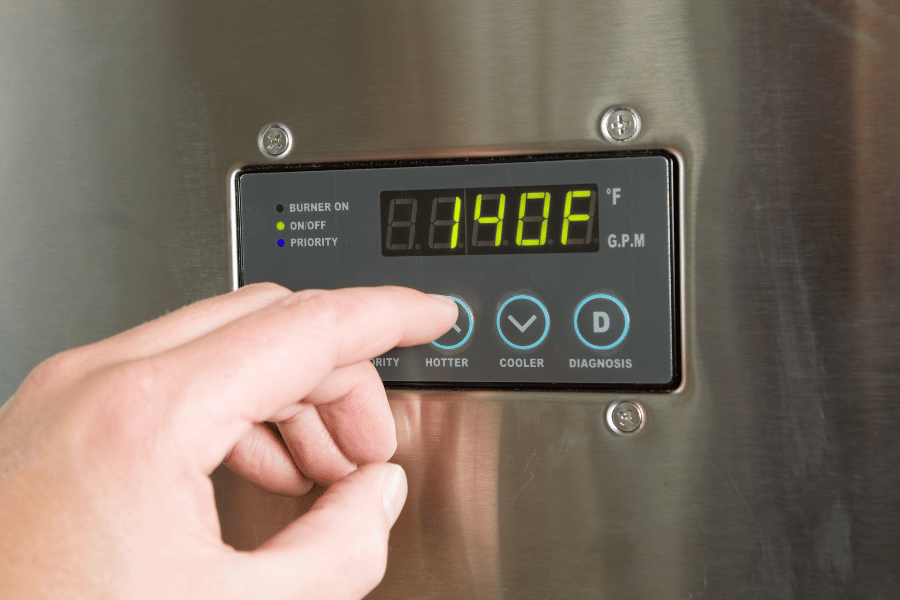
2. Tank vs. Tankless Water Heater
There are different types of water heaters, but storage tank water heaters and tankless heaters are some of the most common ones in homes. Although Tank Heaters are far more common than any other type, we will discuss the difference between a tank water heater and a tankless one.
Storage Tank Water Heater
Storage tank water heaters typically hold 20 to 80 gallons of hot water. The capacity depends on your household size and how much hot water you are using. They use natural gas, electricity, fuel oil, or propane to heat water continuously.
Because these water heaters store hot water constantly, you technically will be paying for hot water whether you use it or not. But the great thing about this is that you will always have hot water available.
These tanks are about five feet or taller and about two feet wide. Because they tend to be large, they are usually placed throughout the house in a basement or a closet. Depending on your tank size and capacity, you can put this storage tank anywhere if it fits.
Tankless Water Heater
These water heaters are not as standard in homes but are becoming increasingly popular. Instead of water sitting in a tank and heating up at all times, this water heater warms up water as it passes through the unit. It uses a heat exchanger to bring the water up to the desired temperature rapidly.
Tankless water heaters run on electricity, natural gas, or propane, providing a constant hot water supply. Heating the water only when you need it saves energy. These units are typically mounted on a wall and can fit in tiny spaces. They all vary, but the standard size is around two feet tall and wide.
3. Types of Tankless Water Heaters
There are two types of tankless water heaters: condensing and non-condensing. Let's explore the difference between the two.
Condensing
Condensing tankless water heaters use a second heat exchanger to transfer more heat to the water. These units lower the exhaust gas temperature to a point where it condenses, which can help increase the flow rate.
Since the exhaust temperature has decreased, it can also mean the ability to use different venting equipment. Condensing models are considered more efficient than non-condensing versions.
Non-Condensing
Non-condensing units need to be appropriately vented to handle higher temperatures. While condensing tankless water heaters tend to be more energy efficient, non-condensing units are known for their lower initial cost and flexibility in installation location within the home.
4. Cost of a Tankless Water Heater
One of the most significant drawbacks of owning a tankless water heater is that it can cost significantly more upfront, both for the unit and the installation. The cost will vary drastically depending on what source you will be using to power your tankless water heater.
Tankless water heaters cost an average of $2,626, but they can range anywhere from $1,398 to $3,893. While this cost seems high up front, the energy savings and convenience tankless water heaters offer homeowners are worth the investment.
Professional installation can add $1,000-$3,000 to your project costs. Most homes install a whole-house water heater system, and the heating source can vary. People tend to continue using the same water heater source that they have previously used.
Many Raleigh homes built before the 2000s need electrical panel upgrades to handle the 120-160 amp draw of electric tankless models. This will further increase the cost of installation.
Several factors influence the cost of a tankless water heater. Those factors are:
- What type of system you are using to heat the water heater
- BTUs, which are British Thermal Units for gas-powered heaters
- How many gallons per minute, or flow rate, affects the price of your water heater
- Tax credits
- Installation
- Whether you have condensing or non-condensing tankless water heaters
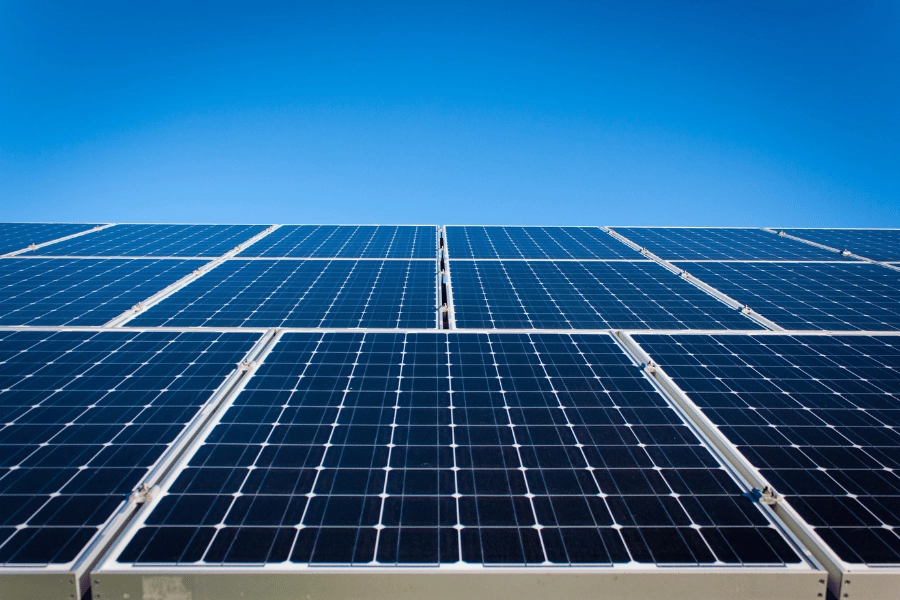
5. Drawbacks of Tankless Water Heaters
As discussed above, the biggest downside of owning a tankless water heater is its higher cost. The initial installation and unit costs are more expensive than a traditional storage-tank water heater.
While most tankless water heaters love to promise "endless hot water," they have a limited flow rate, meaning they can not provide hot water as fast as a traditional tank if multiple appliances within the household use hot water simultaneously.
Most residential units can simultaneously handle two to three moderate water uses (like a shower and dishwasher). However, add a third shower or washing machine, and someone will get cold water.
If you live in an area prone to power outages, a tankless water heater may not be the best option for your household. This is because these water heaters, even those that run on gas, need electricity to run and regulate. If you lose power, you lose hot water.
Some newer Wi-Fi-enabled models require periodic software updates and can even experience connectivity issues that traditional tanks do not have.
When purchasing a tankless water heater, you must understand its maintenance and care. Your tankless water heater requires maintenance at least once a year. Over time, minerals build up inside the water heater, especially in hard water areas.
To get rid of these minerals, the water heater must be flushed to prevent damage or a loss of efficiency. If you live in an area with hard water, your water heater must be flushed at least twice a year.
Professional descaling services in the Triangle area typically cost $150-$300 annually, a recurring expense conventional tanks don't require. Internal filters need regular cleaning every one to two months, adding to homeowner maintenance tasks.
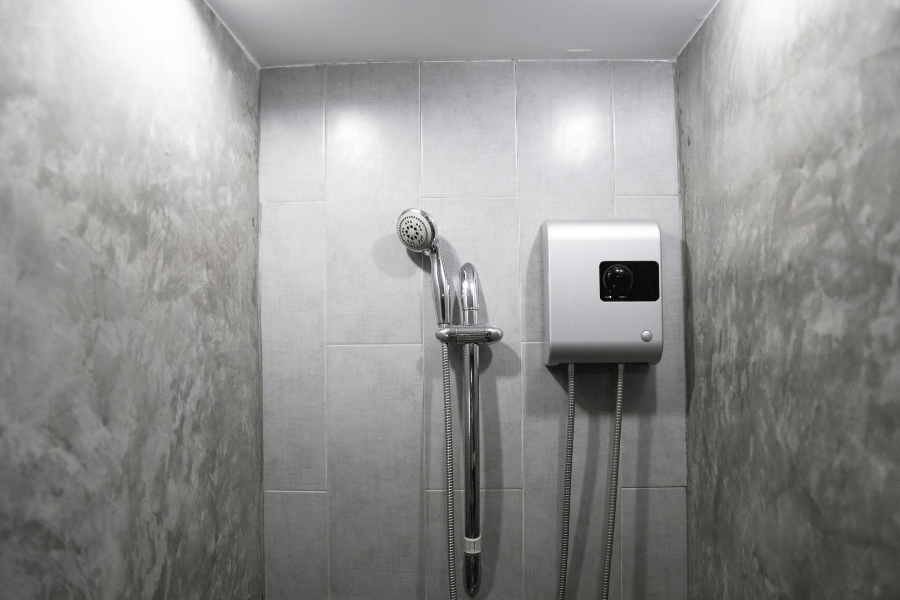
6. Are Tankless Water Heaters Worth It?
Depending on the home and its owners, tankless water heaters can be worth it. This type is good if you are looking for a smaller water heater. But this tank would not be the best option if you live in a large home with multiple people. The more you run hot water, the more reliable a water heater you will need to keep up.
A great thing about tankless water heaters is that they can last between 15 and 20 years before they need to be replaced. This is twice as long as the lifespan of most other water heaters; however, if you have an electric tankless water heater, its lifespan lasts around eight to ten years, about the same as that of traditional water heaters.
Another benefit of these water heaters is that they are safer, sleeker, and use less energy than other types. Although they cost more initially, the energy savings over time make them affordable.
7. Elements of a Tankless Water Heater
The elements that make up a Tankless Water Heater are:
- Control Board
- Heat Exchanger
- Valve
- Burner
- Fan
- Flow Sensor
- Hot Water Out Pipe
- Cold Water In Pipe
- Gas Pipe
8. Steps of the Water Heating Process
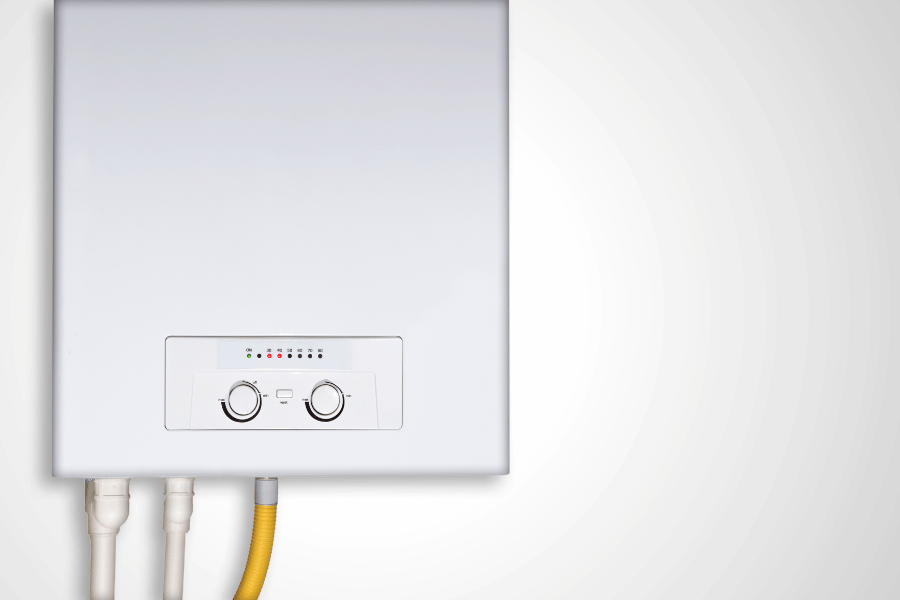
First Step
The flow sensor detects that the faucet has been turned on when water starts to flow into the water heater. The flow-regulating valve controls the amount of water flowing through the heat exchanger.
Second Step
Once the signal is sent from the flow sensor, the control board turns on the heat source. In an electric water heater, the heating elements are turned on. In a gas water heater, the induction fan switches on, pulling in air, and then the gas valve is opened, and the burner is ignited.
Third Step
Water then passes through a mixing valve, where small amounts of cold water can be added if the water is too hot.
Fourth Step
A temperature sensor monitors the water as it exits the heat exchanger and mixing valve. This allows the control bard to adjust the water flow, temperature, and amount of cold water added if needed.
Fifth Step
Once the ideal temperature is reached, the hot water exits the water heater and is sent to the faucets. In the gas water heaters, any gases left from combustion are expelled through the exhaust vent.
Sixth Step
When all the hot water faucets are closed, the control board shuts down the heat source, turns off any fans, and puts the water heater in standby mode.
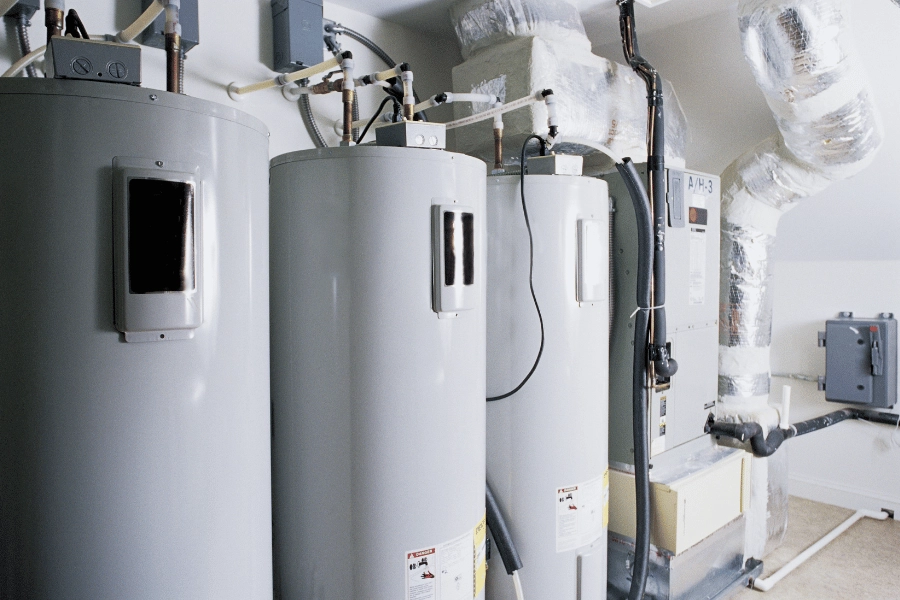
Methodology
Data from the U.S. Department of Energy, United States Geological Survey, and Angi were sourced in April 2025 to determine the downsides of a tankless water heater.
FAQs
How much does your electric bill go up with a tankless water heater?
Tankless water heaters can help you save money instead of increasing your electric bill. According to the U.S. Department of Energy, they are 24% to 34% more energy efficient than conventional storage tank water heaters.
Do plumbers recommend tankless water heaters?
Yes, many plumbers recommend tankless water heaters for their energy efficiency, longer lifespan, endless supply of hot water, and space savings.
Do you save money with a tankless water heater?
While tankless water heaters have a higher initial cost, they provide long-term savings and can eventually pay for themselves due to their energy efficiency.
Is a Tankless Water Heater Right for Your Raleigh Home?
Tankless water heaters can be excellent solutions for specific situations, particularly for:
- Small households with minimal simultaneous hot water needs
- Homes with limited space where the compact design offers real benefits
- New construction where installation costs can be minimized
- Vacation properties where the "on-demand" feature prevents energy waste during vacant periods
Knowing their features and how they work is essential as tankless water heaters become more common in America. Owning a tankless water heater is not the best option for everyone, so it is ideal to research before purchasing one.
At Raleigh Realty, we understand that home systems are crucial to your daily comfort and property value.
Our experienced agents can help you evaluate whether a tankless water heater is a wise investment for your specific home and situation.
If you are relocating to Raleigh, please contact us today for personalized real estate advice tailored to the Triangle market.
